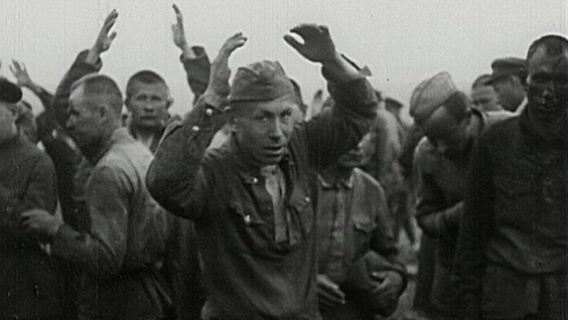
Soldiers of the Red Army were surrendering in droves.
Today is the 70th anniversary of one of the most dramatic meetings of the Twentieth Century.
Joseph Stalin arrived at Soviet Military headquarters on Frunze street in Moscow and confronted his generals about the desperate military situation – just one week after the Germans had launched their invasion. At Frunze street Stalin learnt that the Germans were about to capture Minsk, capital of Belarus, and that the whole front was in disaray. He lost his temper with General Zhukov and then stormed out of the meeting, pausing only to say ‘Lenin founded our state and now we’ve fxxked it up’.
Stalin then disappeared to his Dacha outside Moscow and wasn’t seen for 36 hours. Did he have some kind of breakdown? Historians still argue about Stalin’s mental state at this most crucial time. My own view, having studied the evidence, is that Stalin wasn’t faking it – he genuinely was close to losing his confidence as the leader of his country.
But what I think we should think about today – and something which is seldom mentioned in the context of what happened 70 years ago – is how even though Stalin was in a such a bad place mentally there was no plot to overthrow him. Molotov and the other Politburo members were too frightened, too traumatized by years of Stalin’s oppression and persecution that they dared not move against him.
It’s important in this context, I always think,to remember that whilst there were a number of attempts on Hitler’s life, there was not one on Stalin’s. And, significantly, Hitler – though a monster himself – did not persecute his colleagues as arbitraily as Stalin did.
The truth is that mindless terror directed against people who are working closely with you can help keep you in power in the tough times – at least it did in Stalin’s case.
 Twitter
Twitter





